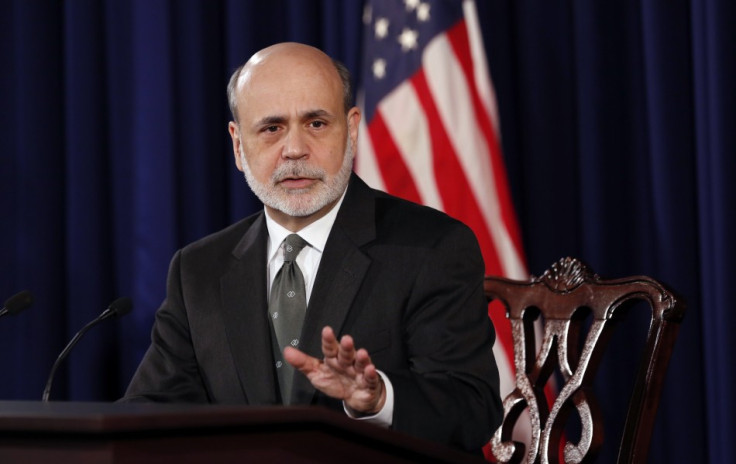Transcripts Show Fed Failed to Pick Up Warning Signs of 2007 Recession
The transcripts were released after a standard 5-year delay

The US Federal Reserve failed to sense the severity of the economic slowdown that gripped the country, revealed the transcripts of the Fed's policy making meetings in 2007.
According to the transcripts which were released after a standard five- year delay, the top policy makers at the Fed including the Chairman Ben Bernanke preferred to believe that the housing and banking problems were isolated and the troubles would be moderate and short-lived.
"I do not expect insolvency or near insolvency among major financial institutions," said Bernanke in December 2007, shows the transcripts which run in to a total of 1,370 pages.
"We have no indication that the major, more diversified institutions are facing any funding pressure. In fact, some of them report what we classically see in a context like this, which is that money is flowing to them," said Timothy Geithner, the current US Treasury Secretary who was the president of the New York Federal Reserve Bank during an emergency telephone call on 10 August.
"We're not seeing anything out of the ordinary or a persistent pattern, and that gives me more confidence that nothing really bad is going to happen here," said Fed Governor Frederic Mishkin at a January meeting.
But the US witnessed the worst recession after the Great Depression with the nation's output shrinking in 2008 and in the first half of 2009 prompting the Fed to resort to interest rate cuts and unprecedented monetary stimulus measures.
Though the Fed officials failed to capture the gravity of the situation, the financial crisis took to catastrophic levels with the collapse of big Wall Street names such as Lehman Brothers, insurer American International Group and mortgage groups Fannie Mae and Freddie Mac. It also started to threaten banking giants Goldman Sachs and Morgan Stanley.
In September 2007, the Fed came out with half a percentage point rate cut, by reducing the core rate to 4.75 percent from 5.25 percent which were followed by further rate cuts in 2008.
© Copyright IBTimes 2025. All rights reserved.





















